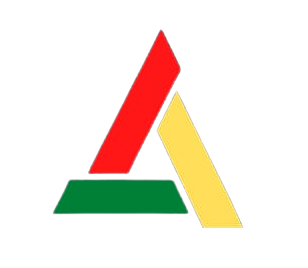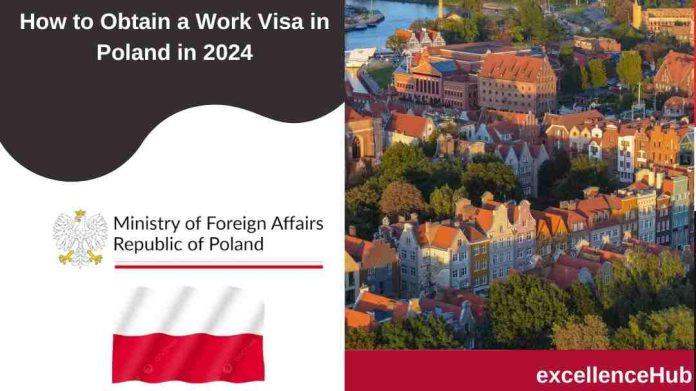Poland is becoming a more desirable location for foreign workers due to its growing economy. Work Visa in Poland. This is a detailed guide on working in Poland:
Employment Market:
- In-demand Fields: There is an increasing need for qualified individuals in Poland across a number of industries, including business services, engineering, manufacturing, IT, and healthcare.
- Work Visa Sponsorship: A lot of Polish businesses sponsor work visas for eligible international applicants. This makes the process of applying for a visa easier for you.
- Employment Boards: Examine employment boards such as:
- Poland’s Indeed: https://www.indeed.pl/
Here’s a breakdown of the process for obtaining a Polish work visa in 2024:
Preparation:
- Secure Employment: The first step is to obtain a work offer in Poland from a registered employer. The company will most likely start the work permit application process on your behalf.
- Identify the Visa Type: There are several types of Poland work visas. The most prevalent form for skilled workers is the Work Visa D (National Work Visa). The precise sort of visa you receive may be determined by your employment offer and the length of your stay.
- Gather Required Documents: Here are some general documents you may need (requirements vary, so check with the Polish embassy or consulate in your native country):
- Valid passport (with at least six months of validity)
- Complete the visa application form (accessible online through the e-Konsulat system).
- Two current passport-sized photographs.
- Employment contract or a document proving your intention to stay in Poland.
- Proof of adequate financial resources to sustain oneself throughout your stay (e.g., bank statements)
- Proof of health insurance valid in Poland.
- Educational and professional credentials (diplomas, certificates)
- Criminal background check may be necessary.
Check: The Canada Skilled Worker Program’s Express Entry | Canada Visa |
Visa Application Process:
-
Submit your application and accompanying documents to the Polish embassy or consulate in your native country, either in person or via mail. The e-Konsulat system can help you find the nearest Polish embassy or consulate. : https://secure.e-konsulat.gov.pl/
- Visa charge: You will have to pay a visa application charge. The sum varies, so check with the embassy/consulate for current fees.
- Biometric Data Collection: You may be asked to attend an appointment to produce fingerprints and a digital image.
- Interview (Possible): In some situations, the embassy or consulate may seek an interview to discuss your application.
Process Time:
Processing periods vary based on your nationality and the embassy/consulate’s workload. In most cases, a decision on your visa application can take many weeks or months.
Work permit (optional):
In some situations, a work permit may be required in addition to the visa. Your employer will usually manage this process on your behalf.
Additional Tips:
- Start early: Allow plenty of time for the application procedure, taking into account any potential delays.
- Double-check the requirements: Make sure you have all of the essential documents and that they follow the format standards.
- Consider getting travel insurance in the event of unforeseen occurrences.
- Stay Up to Date: Visa criteria and procedures are subject to change, so check with the Polish embassy/consulate in your home country for the most recent information.
References:
- Polish Ministry of Foreign Affairs: https://www.gov.pl/web/dyplomacja (English Version)
- e-Konsulat System: https://secure.e-konsulat.gov.pl/
Remember that this is a general guideline; specific requirements may differ. For the most up-to-date information and application procedures for acquiring a Poland Work Visa in 2024, contact the Polish embassy or consulate in your home country.


